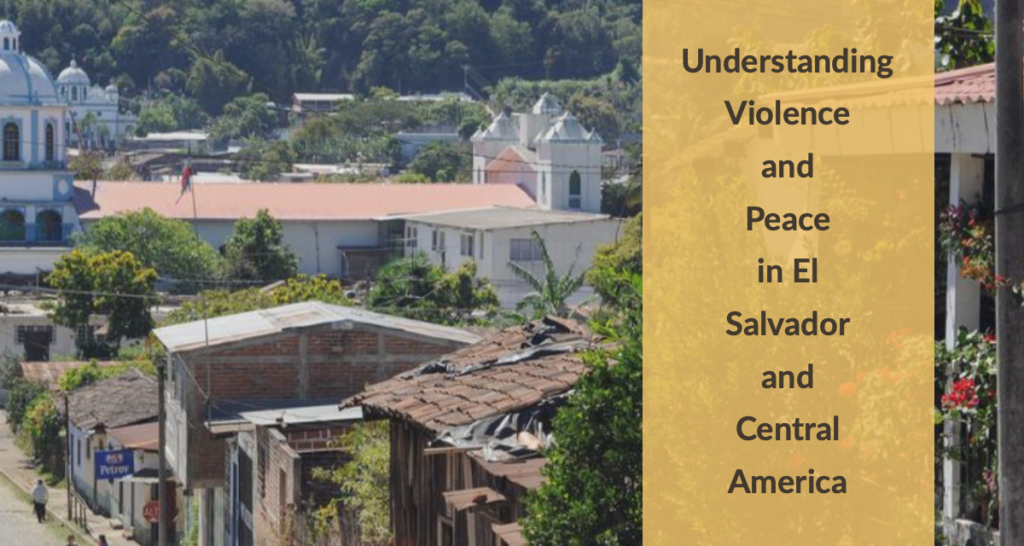Understanding Violence and Peace in El Salvador and Central America
Two partners of Global Ministries (the Salvadorian Lutheran Synod and the Emmanuel Baptist Church) and two Mission Personnel (Ricardo Mayol and Violeta Rocha) participated in a workshop in El Salvador, regarding peace and violence in the country and in Central America. There, more than 60 leaders from churches around the country reflected on how to understand the elements of violence present in the country and internationally as well as ways to promote peace.
During the event, the participants reflected on the need to talk about violence to talk about peace. They underlined that when they look at the world, they see systemic violence. The world system is built based on violence. They identified four major components of violence.
- First is capitalist violence that puts profit as a priority before life. Attacks, repression, and policies against migrant caravans are some examples of such violence. However, big companies have the right to move freely around the world, and the countries are signing treaties for companies to move alongside their capitals.
- There is also patriarchal violence, which appropriates women’s bodies and work. Women generally assume house work and care of families, and it is something that is not considered work but is necessary for life. To remunerate that kind of work is to produce an equivalent of more than 4 billion dollars, almost 20% of what the country produces. Also, women dedicated to house work and care of families do not receive a living wage, they do not receive social security, nor do they save for a pension. That is violence too.
- They also identify extractivist violence, which is a violence that seeks to sell and generate more capital, through the extraction of natural assets.
- Colonial violence is still considered a key element along with the other ways of violence, based on the participants’ vision of development. There are other ways of understanding life, of organizing that come from the ways of indigenous peoples.
The participants asked themselves how will their commitment be in this world full of violence. They asked themselves how they are going to face this monster that they are seeing. The Continental Christian Network for Peace (RECONPAZ) is calling churches to accompany the communities in conflict, to position themselves on the side of the people, to denounce violence publicly, while continuing to dream and build another possible world. There are other ways to organize and relate to each other in peace, justice, and reconciliation. What they said they need is to affirm the joy and the hope of the people.

